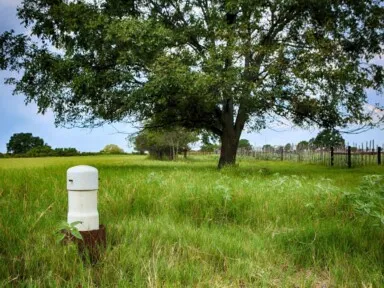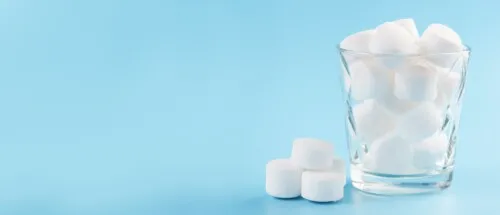Using well water or city water can be a big decision for homeowners. A large part of that conversation, though, often comes with a question: is well water hard water?
Well water —which is groundwater taken from natural underground aquifers for a home’s water supply — has significant benefits like excess minerals it picks up from nature. However, this mineral density is also what makes well water hard.
In This Article:
- What is hard water?
- Is well water typically hard water?
- Signs your well water is hard water
- How to test well water for hardness
- How Leafhome can help with well water hardness
- Frequently asked questions
What is Hard Water?
Hard water means that the water in your home has a lot of dissolved minerals or other contaminants in it. These minerals, like calcium and magnesium, are often picked up by the water when it’s drawn from the earth. Soft water, on the other hand, is when the hard water has these elements removed through a water softening system.
Although well water is safe to drink and has some health benefits, like the added calcium, there are other hard water problems or ramifications for your home. For instance, hard water can create pipe-damaging scale buildup from the calcium and magnesium in it, which can also clog your pipes. It is also known for shortening the lifespan of appliances for the same reason and leaving deposits on your dishes and shower or tub.
Is Well Water Typically Hard Water?
Yes, for the most part, well water is often very hard water. That’s because it comes through natural aquifers that comprise rocks and other minerals. So, as the water sits in the aquifer, it picks up the mineral compounds – particularly if your local environment has water-soluble formations like sandstone or limestone. Deeper wells are also more likely to have harder water because the water has to travel through more rock or sediment layers.
Signs Your Well Water is Hard Water
If you aren’t sure whether your well has hard water or not, there are a few telltale signs. For one thing, you’ll notice mineral buildup in or around your pipes as well as low water pressure, which is caused by that buildup.
Otherwise, there are a lot of other signs of hard water to watch out for:
- Buildup can cause damage to appliances that use water.
- You’ll see more soap scum in your bathroom and kitchen fixtures or faucets.
- Residue or film is seen on your dishes after going through the dishwasher.
- Your skin is drying out and your hair appears dull.
- Laundry detergent doesn’t lather in your machine (minerals cause the detergent not to work)
- The water is cloudy or brown, which indicates poorer water quality.
How to Test Well Water for Hardness
To know definitively whether you have hard water or not, there are plenty of ways to test at home. One such way is to buy an at-home water testing strip. All you need to do is dip the strips into the water, and it will let you know what minerals are in that sample. That said, professional testing is the most accurate option. Leaf Home Water Solutions free water testing services can help homeowners assess the quality of their well water so that they can determine what kind of water purification system is best for their home’s unique water needs.
How Leaf Home Can Help with Well Water Hardness
In addition to professional water testing, our experts at Leaf Home can also work with homeowners to implement water softening, filtration, and other water treatment systems. These systems will reduce the hardness of the water and the damage being done to your pipes, clothes, and hair in the process. Leaf Home Water Solutions tailors these systems to your home’s unique needs or issues and well water systems. Whether it’s a deep, longstanding well or a new one, our experts will get your home into the world of softer water.
Frequently asked questions
How do I tell if my well water is hard or soft?
The easiest way to tell if your well water is hard or soft is to look for buildup and soap scum. You’ll see soap scum in places like the bottom of your dishwasher or around your bathtub or shower. Another easy way to check is to put soap and water into a container, shake it, and see if it suds up or not. You have hard water if it doesn’t or does but only minimally.
Do I need a water softener with a well?
It isn’t absolutely necessary, but it is a good idea. You can easily live with hard water, though it does take a considerable toll on appliances, pipes, and even your clothes, thanks to the buildup from extra minerals.
Is hard water and well water the same thing?
No, they are not the same thing. Well water is water drawn from a well; hard water simply describes water with high dissolved mineral content.
How do I soften my well water?
Installing a water softener system is the best way to soften well water. This system will help remove the minerals like calcium and magnesium.
How do I know if calcium is in my water?
Similarly to checking for hard water, you know there is calcium in your water if there is a lot of soap scum and buildup on items around your house. If you notice a lot of white residue in your dishwasher, around your bathtub drain, showerheads, or even water spots on clean dishes, you likely have calcium in your water.



